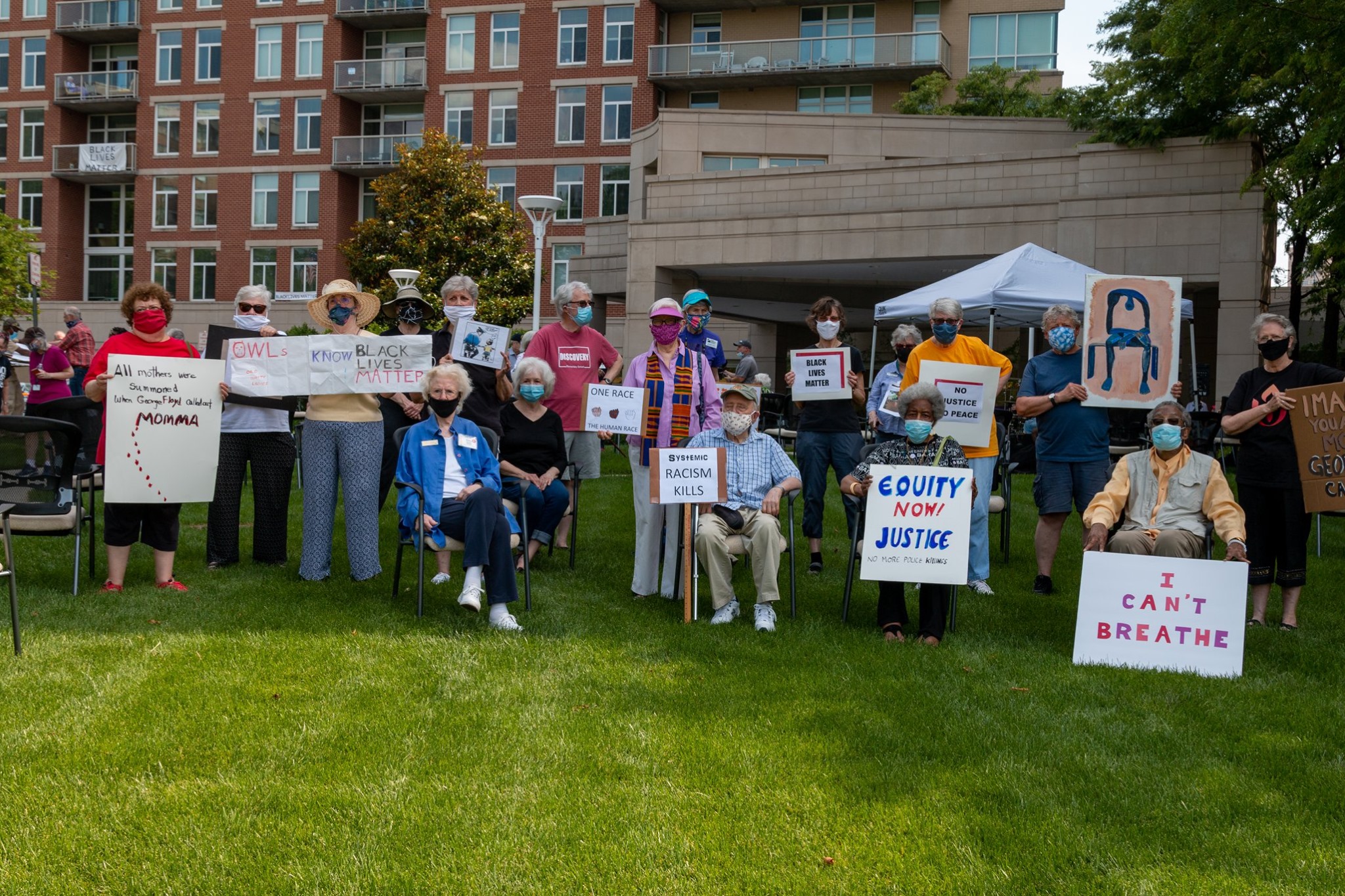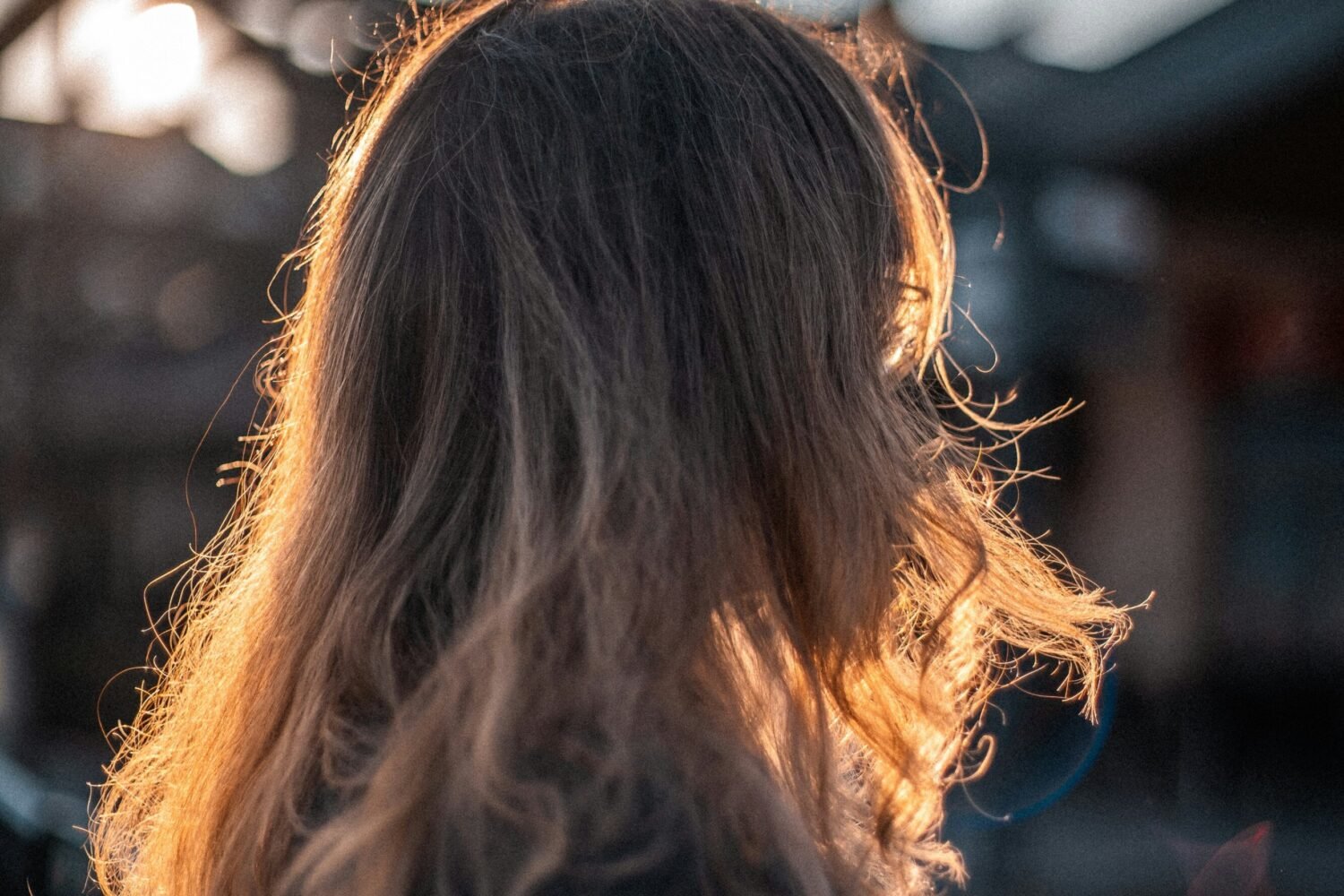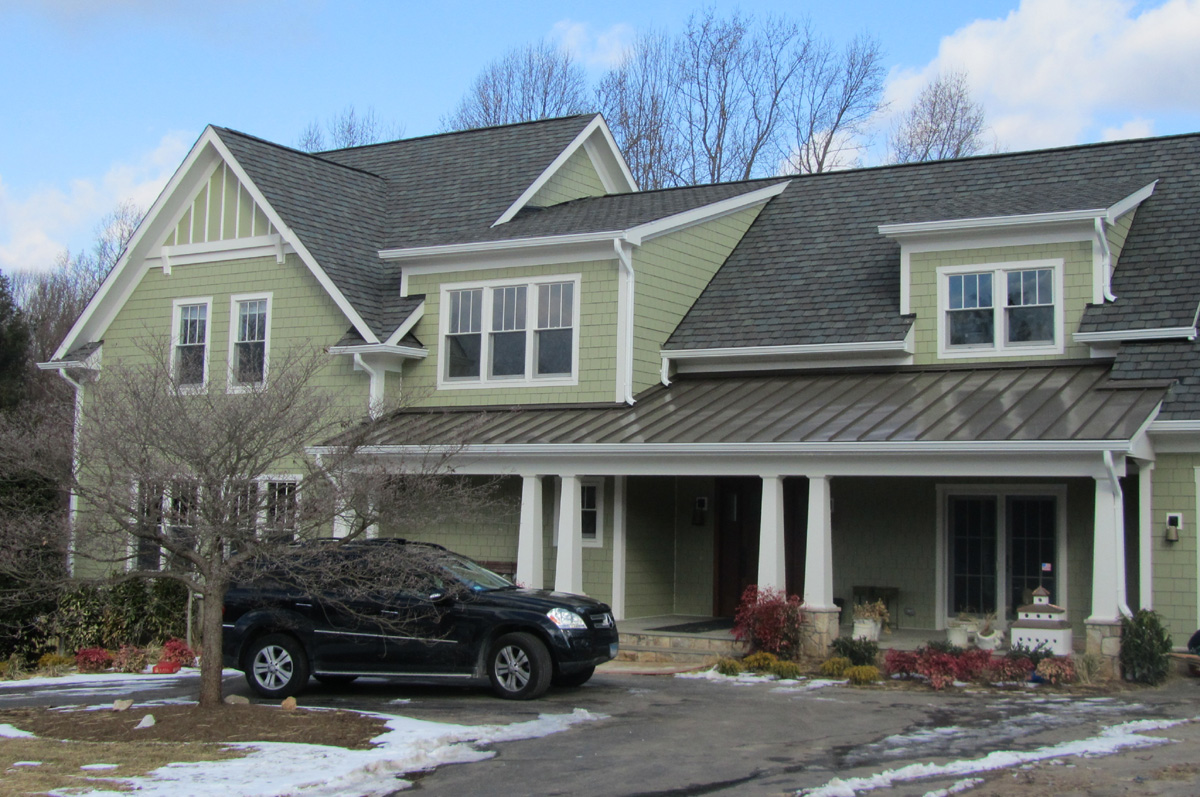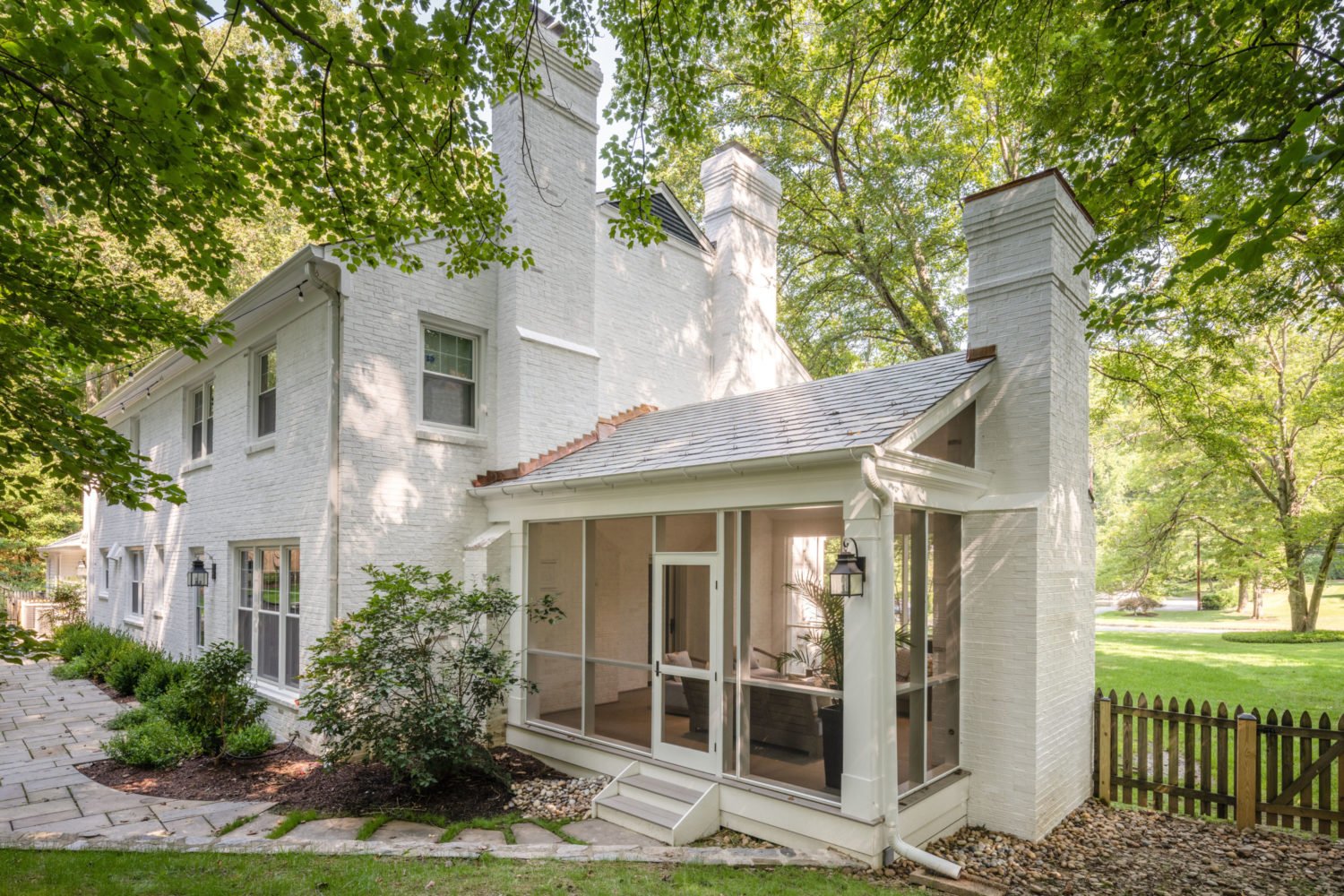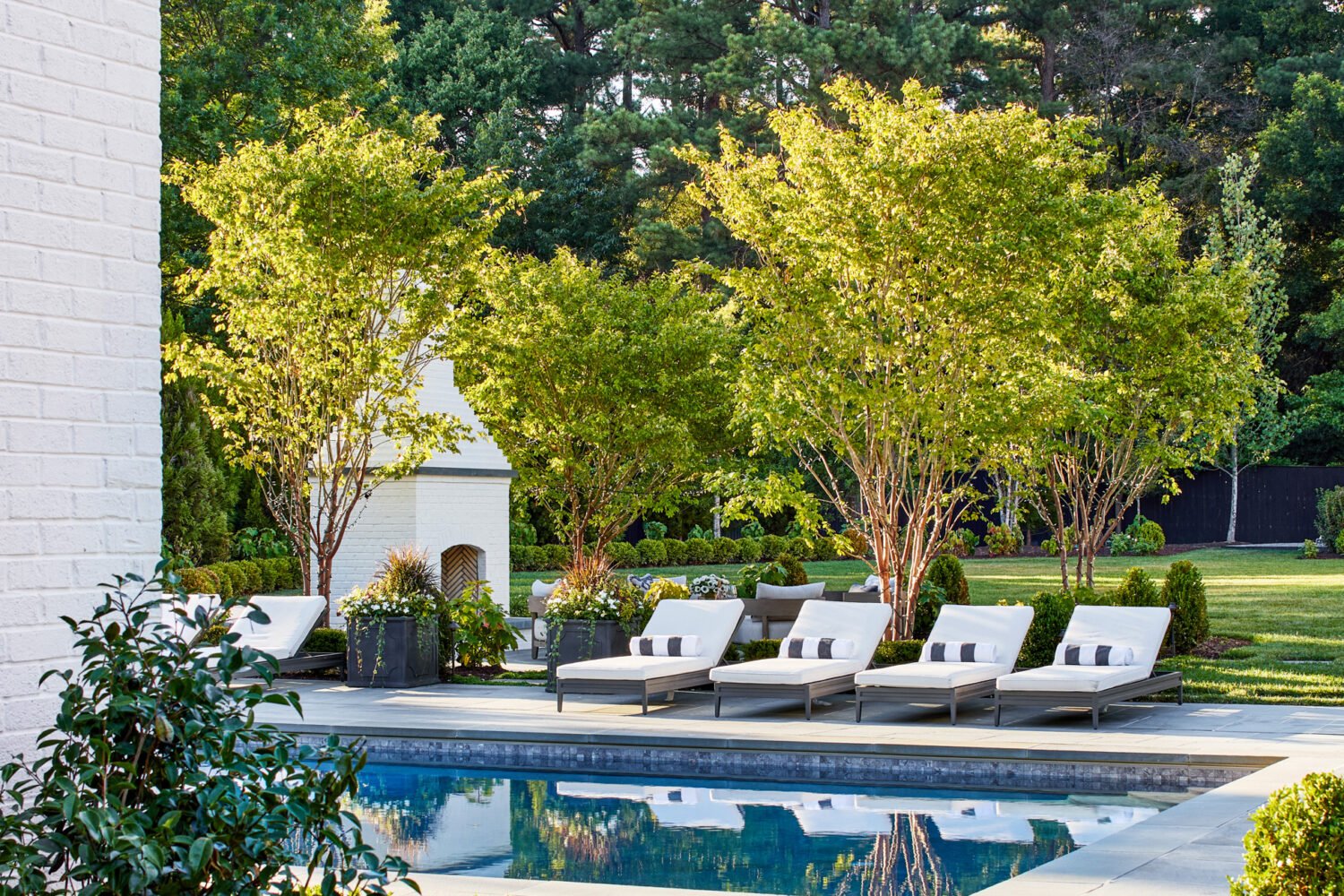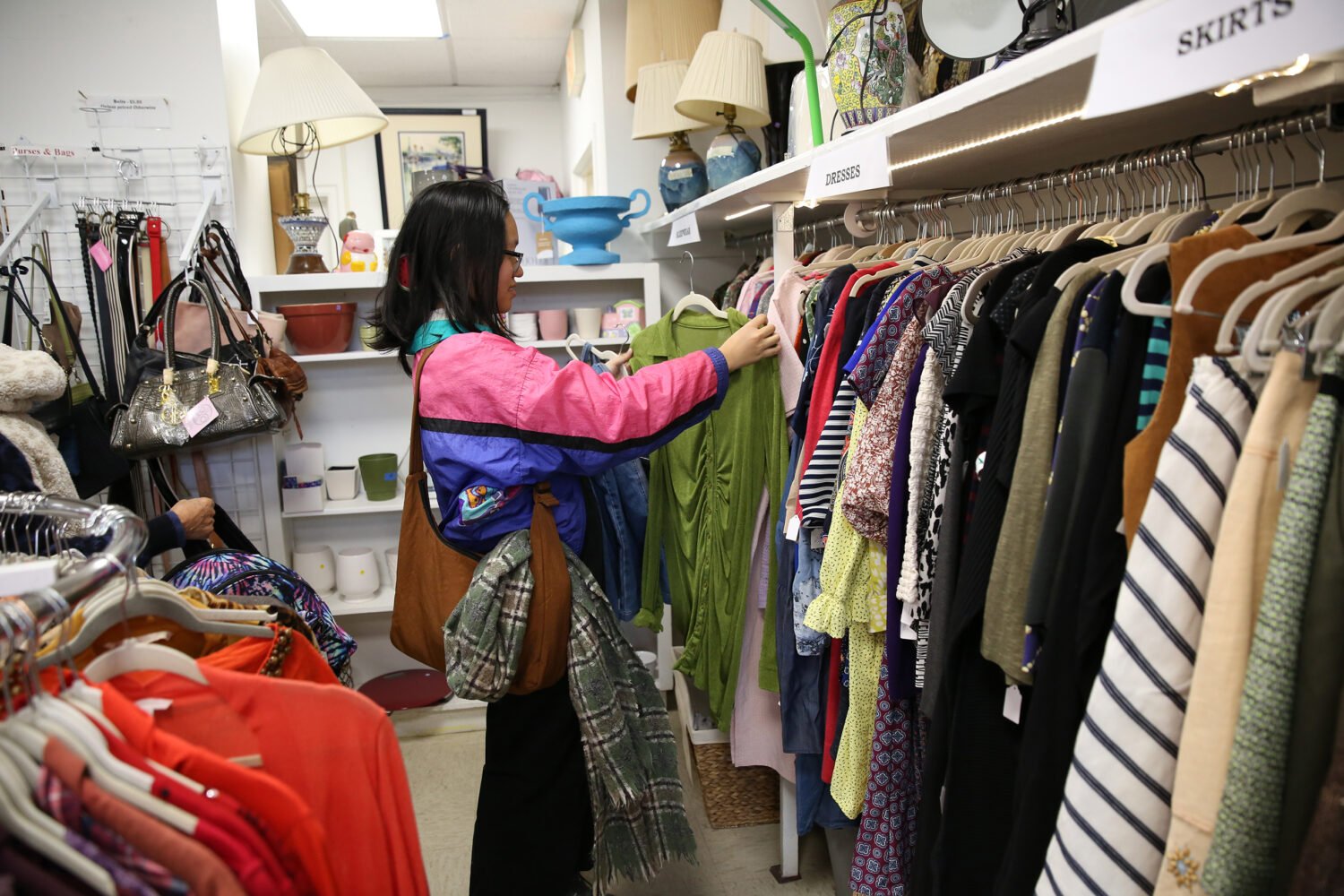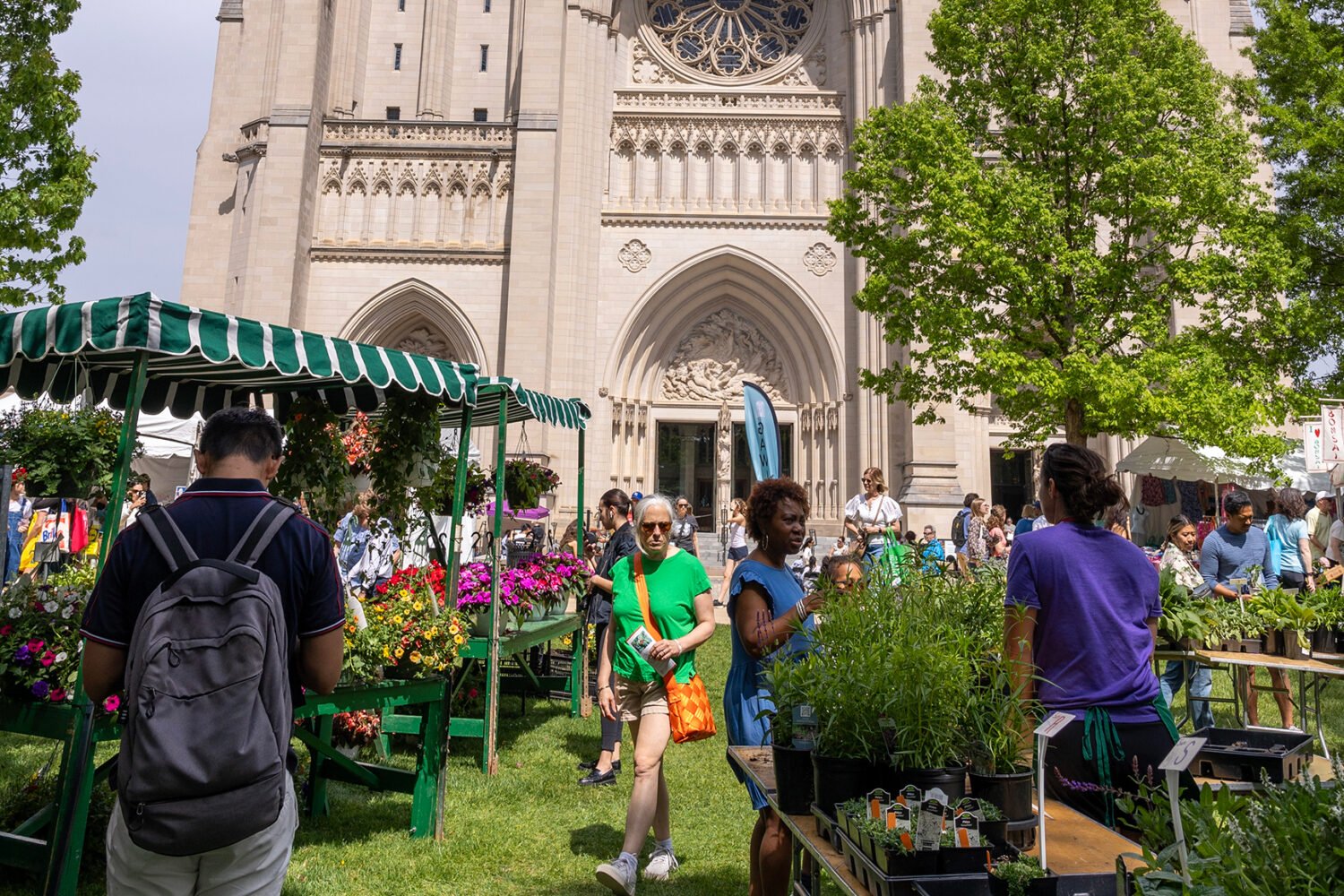On the afternoon of June 9, nearly 250 residents and staff gathered on the front lawn of Goodwin House, a senior-living community in Falls Church. Most residents stood, while some required chairs, their canes or walkers close at hand. Almost all held homemade signs bearing messages such as systemic racism kills and i can’t breathe and black lives matter.
It had been two weeks since a police officer in Minneapolis killed George Floyd. Though Covid-19 precautions had nearly turned Goodwin House into a fortress, the video of Floyd crying for help had penetrated the consciousness of its residents, many of whom wished they could join in with demonstrations downtown. A few women, including 86-year-old Margaret Sullivan, came up with the idea to hold a silent vigil right there on the lawn for eight minutes and 46 seconds, the span that Floyd was pinned under the officer’s knee.
“A great many of us had worked in civil-rights issues since the 1940s,” says Sullivan. Afterward, they hung the protest signs along the fence around their campus. They were delighted to see drivers stopping to read them and to hear them honking in support. “Locked up as we were, it showed we could still speak to the outside world,” she says.
The vigil is just one example of a litany of social-justice efforts led by a club at Goodwin House called the Silver Panthers—a reference to the Gray Panthers, a national anti-ageism movement. The group’s leader, Georgia Fuller, says the Silver Panthers began to form after Goodwin House residents attended the Women’s March in January 2017. “This place was really buzzing that weekend,” says the 75-year-old. “When we came back, we started talking.”
Within days, President Donald Trump had issued his “Muslim ban,” barring nationals of seven predominantly Muslim countries, and the club started to gain momentum. “It affected members of our staff,” Fuller says. (Goodwin House’s employees represent some 60 countries.) “It hit home, and it gave us something tangible to focus on.”
Rita Siebenaler, a 77-year-old member, approached the human-resources team at Goodwin House with a pitch: She wanted to figure out how to get every employee’s citizenship costs subsidized. The HR department, along with the community’s philanthropic extension, the Goodwin House Foundation, obliged. The Silver Panthers have now aided 70 staffers on their path to gaining US citizenship.
Today the group has close to 100 members. People can do as much or as little as they want and can choose from an array of issues to focus on. For instance, 86-year-old Jeanne MacKenzie and 76-year-old Carol Lewis devote much of their time to LGBTQ rights. They helped get Goodwin House staff members cultural-competency training. This year, the community became the first senior-living provider in Arlington, Alexandria, and Fairfax County to be certified by SAGE, the country’s largest organization dedicated to improving the lives of LGBTQ elders.
But the club isn’t just about helping others. Members say they gain a sense of community and purpose from participating. Perhaps at no time has that been more important than during the isolation of the coronavirus pandemic.
While the Silver Panthers haven’t been holding their usual in-person meetings during the virus, they’ve stayed connected in other ways. Before Covid, they’d gather every week to write to legislators and federal officials about a number of causes. Participants in one effort, led by 83-year-old Mary Bullock, have sent more than 1,000 postcards calling for an end to family separations and the detention of immigrant children at the border. Now members meet in smaller groups or take the postcard supplies back to their own apartments.
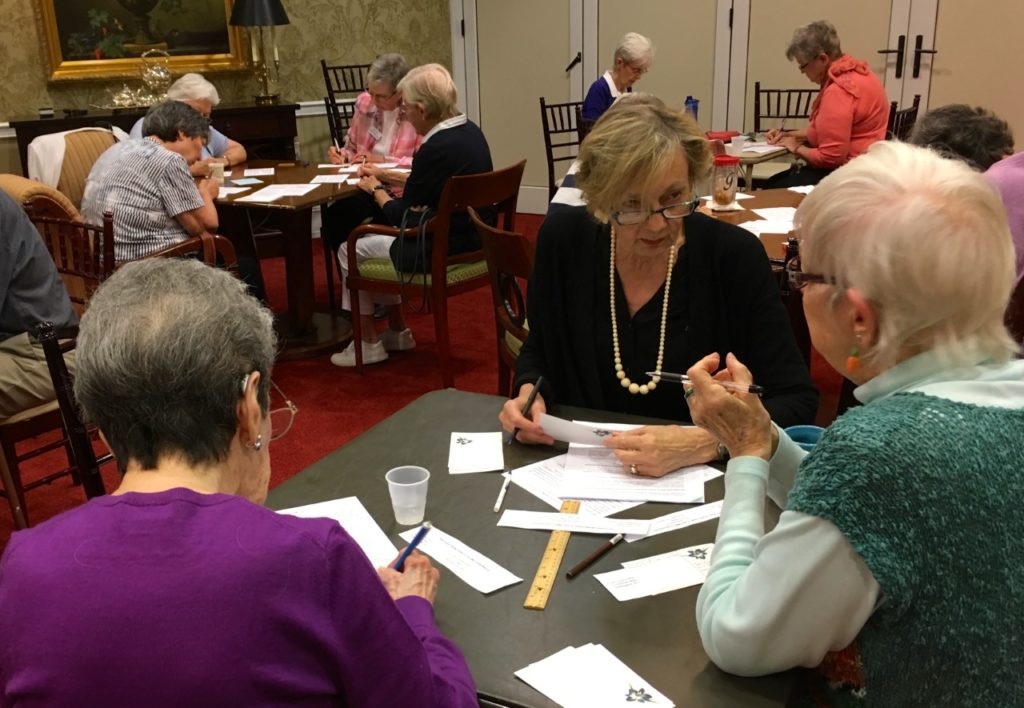
They’ve also been focused on the election, helping fellow residents fill out applications for mail-in ballots—and giving them an opportunity for some human interaction. “The other day, someone whose wife just died came and sat with us for a little bit,” says Sullivan. “We heard a lovely love story that day.”
Which is not to say that all of their neighbors agree with their efforts. Like any senior-living community, Goodwin House is nonpartisan, with hundreds of residents holding diverse views. There’s a Republican group on campus, too. “We’re pleasant with each other,” says Fuller.
Though she adds: “I haven’t gotten to the point of sharing cookies with them yet.”

